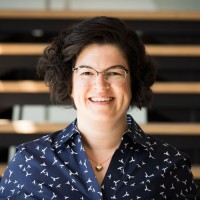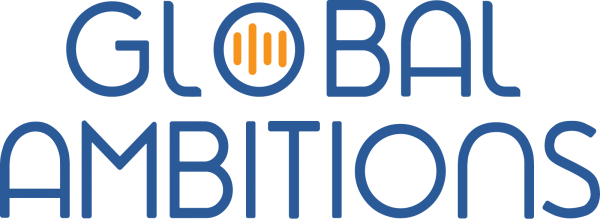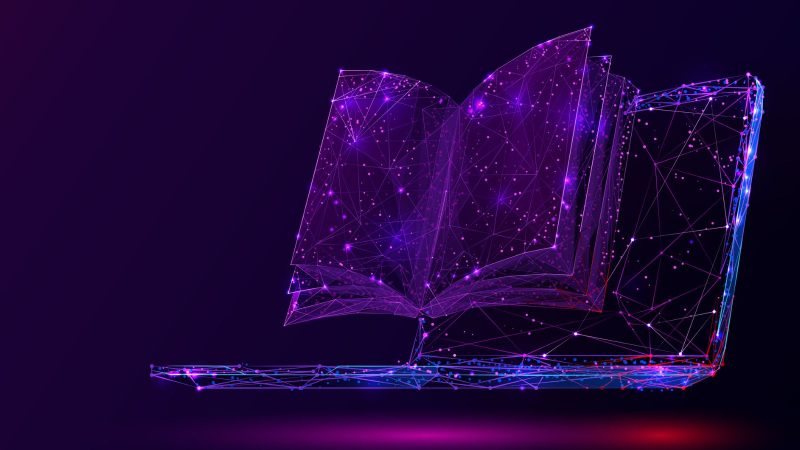With Danielle Marcos, Adjunct Professor at the University of Washington and Program Manager at Tableau Software
Below is a full transcript of today’s episode
Antoine Rey
00:00:18,200
Hi, I’m Antoine Rey, and I will be your host today for this Global Ambitions podcast episode. My guest today is Danielle Marcos and Danielle is a Program Manager at Tableau Software and also an adjunct professor at the University of Washington. And today we’re going to be talking to Danielle not in a capacity as a program manager at Tableau Software, but more as part of her role with the University of Washington. And today we’ll be talking about localization certificates to boost your career. Danielle, welcome to the program.
Danielle Marcos
00:00:51,667
Hi, Antoine. A pleasure to be here.
Antoine Rey
00:00:53,867
Can you tell us maybe a little bit about your life as an adjunct professor and what kind of program the University of Washington offers in this case?
Danielle Marcos
00:01:04,533
Absolutely. The program is a localization certificate entitled Customizing Software for the World. It is a nine-month program with about three distinct modules. Each module runs for about 10 weeks. The program is actually sponsored by the Department of Engineering within Computer Science and the Human Center for Design, as well as the linguistic department. So it’s really exciting to have that type of sponsorship.
I am a co-facilitator co-instructor with some of my colleagues. Each distinct module has different types of professors and we’re all coming from different backgrounds and different walks of life and experiences. I think for me what’s been really awesome and intriguing and unique about this is that this program is actually what brought me to Seattle, which is where I’m currently stationed in if you could say. And I went through the program myself and then became a teaching assistant and then now have been teaching for the last three years. So it’s been really, really exciting to have had those different distinct roles behind the scenes as a student and then behind the podium, so to speak.
Antoine Rey
00:02:15,000
And you have a bit of a dual life then between your role at Tableau and this?
Danielle Marcos
00:02:20,067
Yes, absolutely. I joke with my family and friends who still think it’s really interesting. They don’t know what… I’m constantly evangelizing. I say this to my students because I do it with friends and family. But during the day, I have a program management role at Tableau in the Customer Solutions Department, which is really exciting. So that’s my day job.
And then about six months out of the year, I put a different cape on, so to speak. I teach evening classes and I teach about two cohorts right now. So a winter… based in the US, a winter and a fall.
Antoine Rey
00:02:52,333
So tell us maybe for the listeners here, what type of backgrounds, if there is such thing as a typical background or stage in their career where your students are at?
Danielle Marcos
00:03:04,767
Yeah, it’s actually been an interesting mix, I would say. I’ve noticed. So because I teach the introductory point, I am myself and my colleague who teaches this. We are the first points of contact with the program. So we’re that foundation before they get into a deeper dive into engineering, which is the next module, and program management, project management, which is the third module before they graduate. And I would say we get the early view of where these students may be and we get people that are either in the discipline right now in various capacities or are coming from different walks of life, different disciplines. And that just are curious, maybe they’ve lived abroad, or they maybe have taught English in a different country, or they have some domain of different languages and cultures and they want to learn more about how they can maybe pivot into a different career or maybe merge what they’ve been doing for the last couple of years into something different. So it’s very interdisciplinary the type of demographics that we’ve seen from students.
And that I believe actually enriches the class when we open up into break rooms. Since being completely virtual, just the types of conversations are just really, really enriching and really unique. So usually people that have some sort of a linguistic background or not necessarily or? It’s a mix, it really depends. If I look back to my classes in December of 2020, I had about forty students and I had maybe 15 percent had a linguistic background. Not necessarily a translation background like myself, but some sort of linguistic or literature background. And from there the other percentage are people from all sorts of different capacities. This class that I just finished teaching last Monday. Again, I would say probably a 50/50, so it really depends. I think it’s seasonal as well.
Antoine Rey
00:05:13,533
So there are people that make a conscious decision then to move into localization in that case that have not been pushed in as we have when we were in the mid-90s?
Danielle Marcos
00:05:26,267
Yes, I know they are people who actually choose, and I and I embrace that. I think that, you know, this is a fascinating field. And I think that one of the things that I enjoy the most about teaching the introductory course is that many of my students will walk in thinking that they only have three options. Something in the introductory, maybe a specialist, maybe some sort of linguistic type of role. And then they have to distinctly choose, I’m going to be a PM or I’m going to be an engineer. And so there’s a lot of emotions that are driving that first class.
And when one of the positive pieces of feedback that I’ve received is that just having conversations and being able to talk to industry leaders and being able to have our teaching assistants that are also in the role in localization is that it’s actually much broader and that they can really combine different things and kind of make their own and that they don’t have to distinctly choose one track or the other. Now, there are those students that love that more structured approach, and it’s there it’s right there available to them to learn more.
Antoine Rey
00:06:36,600
So do you want to tell us maybe a bit more about some of the topics? You’ve alluded to it a little bit, but some of the topics that are actually being taught there?
Danielle Marcos
00:06:44,767
Sure. As I mentioned, there are three distinct modules. So in the introductory class, we really touch on a variety of different topics within globalization, internationalization, localization. We touch on a little bit of translation just to be able to exemplify the differences between the two, and especially if we do happen to have more translation backgrounds of students in a given cohort.
I’m focused on five classes, so I teach five weeks out of the 10 for the introductory module. And so I talk about things like localization ecosystem, localization projects, workflows, the different roles, and responsibilities. We really get into a lot of the job descriptions of what’s out there and that changes all the time. And we talk about vendor management, vendor resourcing, and then we touch on a little bit of internationalization. And that’s kind of the last class they have with me before they embark on the deeper dive.
Antoine Rey
00:07:44,467
That’s all the foundational topics. And they go into what then?
Danielle Marcos
00:07:49,000
Engineering and then they move on to project management and program management. So the PM’s, the various PM flavors.
Antoine Rey
00:07:56,767
And those two, engineering and project management, that goes quite in-depth into them?
Danielle Marcos
00:08:01,167
Yes, I would say they go far more in-depth than what the introductory class can offer in 10 weeks. I wish I could just spend three or four weeks on each topic, but that would make it a much longer course work and load. But yes, in the engineering part, they actually get hands-on practice with a lot of the industry benchmark tools. They’re actually doing file transfers and they’re doing coding and extensions and all of that kind of stuff. They’re looking at machine translation. It’s still varied, but it gets a layer deeper in.
And then the PMing, they actually have a capstone project at the end. So they have to present to customers and they actually get to interact with a lot of people that the instructors and that the program has come to know and built relationships with so that they can get some sort of exposure to that real life.
Antoine Rey
00:08:52,067
And do you have some people so you mentioned that there are some students that are coming in with no localization background at all, but those that sometimes have a localization background, they’re already in the localization job? And does that bring them sometimes to change career or to change while not completely industry, I guess, but to change roles within the localization spectrum?
Danielle Marcos
00:09:12,600
Yes, I have seen that. So the beauty of…I would say the bittersweet of seeing them at the beginning, it’s like reading a book and not being able to finish it. Right, maybe losing it or something somewhere misplacing the book. And I don’t get the end of the novella as I would say, but I do keep my relationship with students. I keep an open-door policy, as they would say, very virtual. I’ve mentored many of my students. Many of them have kept me up to date with their promotions or they’ve asked me questions about, hey, I’ve gotten this far in the interview process with this company, I’m nervous, can I talk to you? So I’m very honored that I continue to see many of my student’s journeys.
And some of those students have, even before the program ends, they are already thinking about as they learn more of the intricacies of different roles and different paths that they can have within the industry. They’re already asking a lot of questions about how what would it look like? What do you think I need? Should I do some programming? If I want to go into engineering, should I learn more data? Because I’m seeing that in a lot of job descriptions. Could you discuss this thing with us in the last class? So it’s really fabulous.
Like, I never, never thought that I’d be in the situation in this position and I have just been really enjoying it. It’s challenging, but it’s very, very rewarding to… very rewarding just to hear what’s on people’s minds and what are some of their concerns and some of their aha moments and just sparks of creativity. And as you just mentioned, another beauty of it is, you know, a lot of students, they feel that, oh, I don’t have what my peers have. I hear them talk about themselves a little bit when they introduce themselves in the class. And, wow, I feel a little intimidated. And in the end, after 10 weeks, they realize I’ve actually learned a lot from my peers. Right. So and I myself as an instructor, I learn a lot from my students. And I actually encourage that kind of disparity between people who don’t know anything about the industry and some that have been in the industry for maybe three, some four, seven years. There there’s a beauty… there’s a different voice that they’re able to offer that’s complementary to the content.
Antoine Rey
00:11:25,600
Yeah, it seems like a very practical way to get into the industry, like from a university teaching into the reality of a job of what that might look like and either to get into that industry or to actually change role within that industry.
Danielle Marcos
00:11:40,967
Yeah, especially if you think of those that just happened to fall into the role. Right. Then that may be the only thing they know. And so by getting a somewhat formalized view, holistic, formalized view, they can actually come out saying, wow, I didn’t know I had these options or that I still that I could combine or reword my resume in a certain way to make it appealing or have seen the value that I can bring to different companies. I just didn’t know that I had that within me.
Antoine Rey
00:12:13,567
What do the students get at the end of the course itself? They get a certificate or what is that called?
Danielle Marcos
00:12:20,633
Yes. So they get a verifiable certificate, I believe, don’t quote me, but I believe they’re still mailing them to people’s homes. They do have a verifiable certificate. That’s it’s something that I’ve seen students actually mention that many, many job seekers want to know more. Let’s say I’ve had students where they didn’t have the certificate yet and they started to put it on their resume as a prospect or that they were in the process of getting the certificate and they actually got more attention from different recruiters and different companies. That doesn’t translate to getting the job because as we know, interviewing is a skill in itself. But I believe that it’s equipped them or made them feel a little more confident that they speak about it.
Antoine Rey
00:13:08,600
It’s an additional qualification and point of interest that they can talk about.
Danielle Marcos
00:13:12,867
Exactly.
Antoine Rey
00:13:14,400
Very good. Great. Well, listen, one last question, Danielle, for me is you’ve been on global ambitions now. So can you recommend someone that you’ve come across in your career or through your life as an adjunct professor there that would be a good candidate for being a guest on this program?
Danielle Marcos
00:13:33,300
I know a lot of people in the industry that I know are either benefiting right now from this or would be great for you to speak with. But I think related to this topic, I would invite you to reach out to Adriana Grande. She is doing some really great work at Roku. I’ve been really fascinated lately with the user experience and the design space and how we can improve the journey of our international users. So I would reach out to her and see how she’s combined what she learned from school.
Antoine Rey
00:14:03,533
And very interesting because we have someone on the program who has talked about user experience as well. So that would be great to make the connection, especially if she’s gone through the ranks of your program at the University of Washington. Yeah, fabulous. Well, listen, thanks very much for your contribution today. I’m sure our listeners would be very interested to hear a bit more about this course at the University of Washington. And you might get a few applications as a return, you know.
Danielle Marcos
00:14:30,433
Absolutely. They can reach out to me as well.
Antoine Rey
00:14:32,967
Very good. Thanks very much, Danielle. And we’ll talk to you very soon again.
Danielle Marcos
00:14:36,733
Bye Antoine.

Danielle Marcos
Adjunct Professor at the University of Washington
Program Manager at Tableau Software




